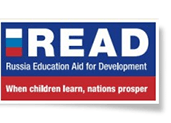In today’s technology-oriented society an understanding of how it is possible to improve learning outcomes is of vital importance both for the formulation of educational policies and for the actors of the educational process, including parents and the students themselves. In order to collect contextual information about students undergoing testing and to compare the results of monitoring in different cultural and socio-economic environments, a contextual questionnaire was developed for SAM.
The educational achievements of students are an important indicator for stakeholders in the educational process: parents, teachers and the students themselves. Understanding these achievements and their relationship with various demographic or individual characteristics is a necessary factor for increasing the effectiveness of learning.
That is why when monitoring the educational achievements of a group or an individual it is necessary to collect additional (contextual) information that allows for a more complete picture. Two sources that give the greatest information are student and teacher. When interviewing the teacher and student, it is possible to obtain sufficiently complete information about the factors related to the quality of the educational process.
In the framework of the development of a comprehensive survey two types of questionnaires were developed: student questionnaire for 4th and 5th grades and a primary school teacher questionnaire. For each of the questionnaires the measured constructs were selected and justified and their operationalization was carried out.
In the teacher’s questionnaire the following constructs were included:
- socio-demographic characteristics of the teacher and academic achievements
- teacher training and student achievements (length of service, participation in advanced training programs, and topics that were given attention at training)
- job satisfaction and “professional burnout”
- characteristics of classes (number of children in a class, heterogeneity of in the classes)
- teaching practices and achievements of students
Developed student and teacher questionnaires allow the determination of the factors that are associated with the child’s academic success in school. This complex can also be used for international comparative studies in order to compare the results of education quality monitoring. It helps to ensure a comprehensive analysis of test results, to interpret them correctly, which provides additional material for further research and development of approaches to the adjustment of educational policy






